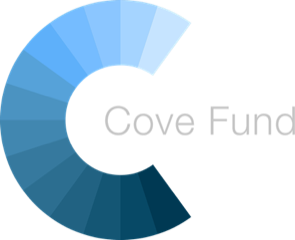Why We Say No: Common Reasons Startups Don’t Make It to Diligence
In venture capital, “no” is the most common answer. At Cove Fund, every year we review hundreds of startups, yet only a fraction make it to formal due diligence — and fewer still receive an investment. So what separates the promising from the passed-over?
We posed this question to our Limited Partners (LPs), many of whom are seasoned operators, investors, and domain experts who actively shape our decision-making. Their responses offer a candid look into the thinking behind the “no” — and a valuable guide for founders preparing to pitch.
1. Founders Make or Break the Deal
“The jockey matters more than the horse” is more than a cliché — it’s a cornerstone of early-stage investing. Multiple LPs cited discomfort with the leadership team as a primary reason for passing. Sometimes it’s a question of credibility. Other times it’s coachability, or whether the founder is focused on building a business versus just raising capital.
As one LP put it: “Management issues and focus on fundraising versus growth.” Another noted, “Discomfort with the leadership team” as a consistent deal-breaker.
Investors are looking for founders who are clear-eyed, self-aware, and open to feedback. They don’t expect you to have all the answers — but they do expect you to be thoughtful about what you don’t know and committed to learning.
2. Unrealistic Assumptions Undermine Credibility
Startups are built on vision, but that vision must be anchored in credible assumptions. Several LPs flagged “unreasonable business forecasts” as a red flag. Others mentioned “unclear value proposition” and “uncredible product creation or go-to-market plan.”
We understand the temptation to paint an ambitious picture. But projections that lack grounding in real data, market understanding, or customer feedback don’t inspire confidence — they erode it. Sophisticated investors aren’t looking for perfection, but they are looking for realism.
3. No Clear Long-Term Competitive Edge
One of the most insightful responses we received was: “No clear understanding of how the company can compete long term.” It’s not enough to have a good idea — we need to understand how you’ll win and stay ahead.
That means articulating your unique value proposition, identifying defensible advantages (e.g., proprietary data, IP, network effects), and mapping out how you’ll scale in a competitive market. If we can’t see how your company survives the next wave of entrants or incumbents, we hesitate to move forward.
4. Misalignment with Investor Expertise
Sometimes a “no” is less about the startup and more about the investor. As one LP explained, “The primary reason I tend to pass is when a company is operating outside of my area of expertise.”
Cove Fund benefits from a diverse LP base — from healthcare veterans to SaaS entrepreneurs — but if a company falls outside an LP’s domain and no internal champion emerges, it often doesn’t get the votes needed to move forward. This is a reminder to know your audience. Tailoring your pitch to the background and interests of your investors increases your odds of success.
5. Concerns About Market Positioning and Execution
A recurring theme was concern over the startup’s ability to execute in a competitive landscape. LPs flagged issues like “poor return probability,” “don’t believe they can win against existing competition,” and “credibility or forecast” as reasons for passing.
What this boils down to is execution risk. Even with a good idea, a strong team, and a real market, investors need to believe you can deliver. That belief is earned by showing traction, a clear plan, and a deep understanding of your market dynamics.
Putting It All Together
At Cove Fund, we’re transparent with founders: our diligence is collaborative, but also rigorous. We’re looking for clarity, coachability, credible assumptions, and a compelling path to competitive advantage. Most of all, we’re looking for people we believe in — founders we can partner with through the inevitable ups and downs of early-stage growth.
If you’ve ever received a “no” from us, it may not mean your startup isn’t fundable — it may just mean it wasn’t the right fit for our team at that moment. And if you're preparing to raise, consider this blog a checklist: not just for what to pitch, but how to position yourself to earn conviction.
About Us
Cove Fund is a seed-stage venture capital fund based at UC Irvine’s Beall Applied Innovation, a hub for Southern California entrepreneurs and investors. We invest in early-stage technology and life science companies with differentiated products that address large markets and can achieve major milestones with seed funding.
Since our inception, we have invested over $20 million and are actively deploying capital from our $24 million third fund. If you are a Southern California startup seeking funding — or an investor interested in becoming a limited partner — visit us at www.covefund.com.
